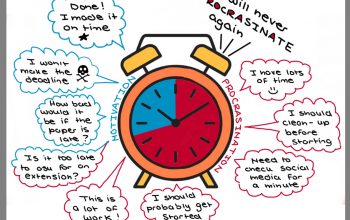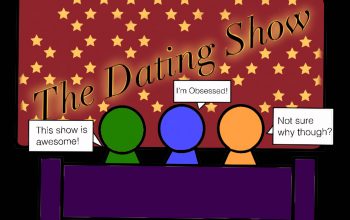The Effects University Level Stalling
Sam B. CONTRIBUTOR
Starting this article has been harder than I thought. It’s almost ironic that, given my topic, I’ve decided to do just what I promised myself not to do: procrastinate. It’s something everybody is guilty of. Putting something off so as not to do it at that moment. Constantly tell yourself “not yet” because you have better, more important things to attend to. Stalling. Waiting for the “perfect moment” or taking your time. Whatever you want to call it, the formal term is “procrastinating,” and procrastinating is probably the leading cause of stress in university. Probably. Let’s face it, the procrastination epidemic is rampant and I know I’m not the only one suffering. Procrastination is like that addiction that we haven’t quite been able to figure out how to stop. It’s something that we wish we could get rid of, but never quite enough to quit the habit. Most of my friends suffer from procrastination and, even now, as I write this, I’ve stopped about four times and gotten distracted with things like Tumblr or Youtube videos. The unlimited scroll feature on Tumblr is practically designed to prolong the procrastinating experience by an extra four hours.
Perhaps the reason me and millions of my peers cannot stop procrastinating is because the work always manages to get done somehow. Even if I can’t bring myself to start the essay weeks before it’s due, the proper motivation (in the form of 3 hours before the Turnitin deadline of midnight kicks in) presents itself eventually. The task will be finished eventually, and that should be enough, right?
Yes, students find themselves still managing to complete assignments and study for tests last-minute, despite their procrastinating habits, however it also builds up stress and results in poor performance. Almost all students will agree that the work they submit after weeks of procrastination isn’t their best. The essays written at three in the morning have significantly less quality than that of the essays you’ve gradually been working on, all typed up and printed the night before it’s due. The midterms you just wrote could have led to better grades if you hadn’t crammed the night before. This kind of stalling and can lead to smaller-scale stressors as well. Leaving the dishes in the sink or postponing your readings leads to build-ups that are difficult to make up for later. All in all, procrastination’s negative aspects outweigh any half-baked positives.
So why continue? Some of us just don’t have enough motivation to start something and need that pressure and stress to be productive. Is that a healthy way to produce work? No, but it certainly seems to work. Others, according to some professionals, are afraid of failure and put off the possibility of failing as often as possible. But whether you fail now or fail later, we must face reality, which is that things need to get done and that doing it today is better than doing it tomorrow, no matter how appealing tomorrow seems.
Tumblr posts and Youtube videos are going to continue to exist, but things like assignments and readings and other tasks have a time limit. It’s best to have them done early so that you can enjoy the day and all it has to offer. Being aware of this problem is the best-case scenario. Knowing that this is a problem, that we have problems scheduling our time, is a good thing because we need to acknowledge the problem so that we can fix it. Do I have any tips for fixing this problem? Goal setting and making sure to set those goals early seem to be the most popular answer and it’s something that I’ve considered using to help get over my own procrastinating habits. These habits are a problem that I want to fix, and I am determined to fix them. I tell myself that I’ll get over this and start scheduling better and getting more sleep. I’ll stop putting off assignments and do them in advance so I don’t get overwhelmed by the due dates. I’ll stop procrastinating, and if not stop then at least I will procrastinate less.
Maybe not now, though. Maybe later.



